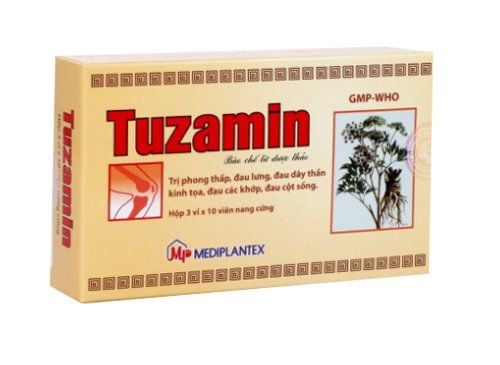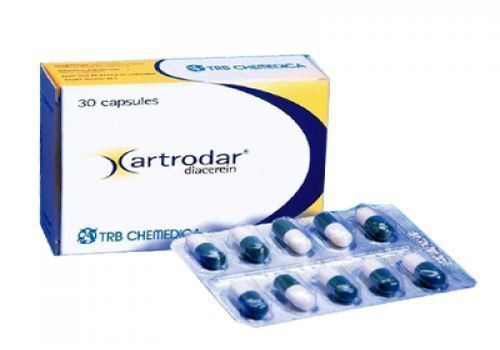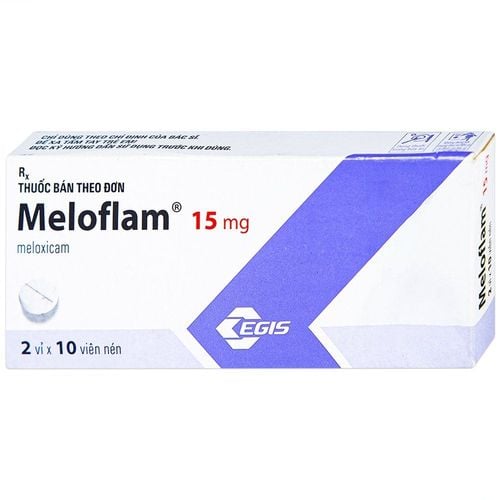This is an automatically translated article.
Nutrition plays an important and indispensable role in the treatment regimen for osteoarthritis. A healthy diet does not cure osteoarthritis, but it can help people stay healthy and get many other benefits. What to eat to know osteoarthritis? Find out in the following article.
1. What is degenerative joint disease?
Osteoarthritis is a condition in which the cartilage and disc layers are reduced in function and damaged. Osteoarthritis patients may present with 1 or more symptoms such as: Inflammation, reduced mucus lubrication, difficulty in movement...
Osteoarthritis is common in the elderly, especially over 60 years old. Osteoarthritis is caused by natural aging that occurs inside the body. The function of bones and joints decreases as you age.
The process of treating osteoarthritis requires a lot of time, money and compliance with the doctor's instructions.
2. Other factors affecting degenerative joint disease
Diet has an impact on the symptoms or progression of arthritis. Especially in overweight individuals, a weight loss of ≥10% improves joint pain and function.
It has been suggested that lipids contribute to the pathophysiology of osteoarthritis. Dietary ω-3 long chain PUFAs influence cartilage composition and beneficial effects in arthritis.
High cholesterol is also linked to degenerative joint disease. Therefore, a cholesterol-lowering diet is very important in osteoarthritis patients.
Vitamin D is a component that affects the state of many joint structures. Evidence for an association between serum vitamin D, 25(OH)D biomarkers and arthritis was evaluated in a systematic review. As for the progression of knee arthritis, radiography is associated with low 25(OH)D in the body.
In addition, vitamin K is also important in cartilage metabolism. Vitamin K deficiency was associated with knee arthritis and cartilage damage on MRI (RR 2.39; 95% CI, 1.05-5.40) compared with individuals with adequate vitamin K supplementation.
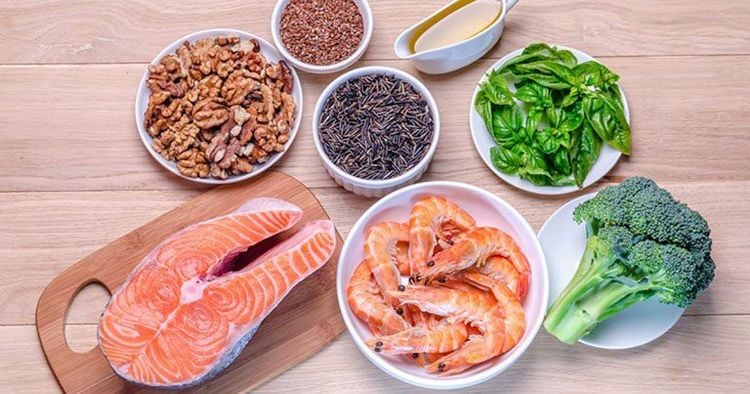
Bạn nên bổ sung vitamin D, K, lipit nếu còn thắc mắc "thoái hóa xương khớp nên ăn gì".
3. Osteoarthritis should eat what?
In the treatment regimen for degenerative joint disease, nutrition plays an important role and cannot be ignored. Although a healthy diet does not cure osteoarthritis, it can help people stay healthy and receive many other health benefits.
3.1. Cut down on extra calories
Patients should lose weight if they are obese, when weight is controlled, cartilage will be strong and inflammation will be reduced.
To reduce calorie intake, the sick person should:
Eat smaller portions. Avoid sugary foods and drinks. Eat mainly plant-based foods.
3.2. Eat lots of fruits and vegetables
Fruits and vegetables are the answer if you are wondering “what should you eat with knee osteoarthritis?” . These are foods that contain antioxidants, which help protect cells from damage.
Antioxidants are found in fruits and vegetables such as: Apples, onions, shallots and strawberries,...
3.3. Omega-3 supplements are the answer if you wonder "what should you eat for osteoarthritis?"
Omega-3 plays a role in reducing pain and stiffness in the morning. Omega-3s are found in fatty fish such as salmon, tuna, mackerel, herring and sardines.
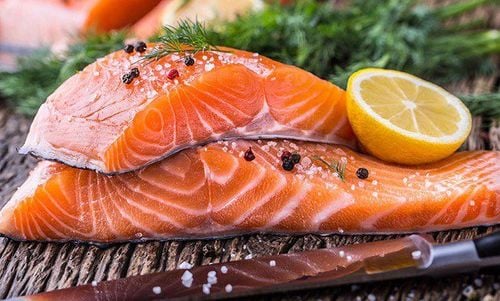
Nếu còn thắc mắc "thoái hóa xương khớp nên ăn gì" thì cá hồi là lựa chọn lý tưởng cho người bệnh.
3.4. Use olive oil in place of other fats
The compound in olive oil is oleocanthal, which has anti-inflammatory effects similar to ibuprofen. Therefore, people with osteoarthritis should add olive oil to their diet in place of other fats.3.5. Provide enough Vitamin C
Vitamin C builds collagen and connective tissue, making bones strong. According to experts, the recommended amount of vitamin C per day is as follows:
Women: 75 milligrams. Men: 90 milligrams. Citrus fruits, red peppers, strawberries, broccoli, cabbage... are foods that contain high levels of vitamin C.
3.6. Fortified with vitamin D
Ways to increase vitamin D in people with osteoarthritis are as follows:
Regular exposure to sunlight in the early morning. Consume vitamin D-rich food sources or supplements at doses ≤ 25 μg/day.
3.7. Avoid cooking food at high heat
Meat cooked at high temperatures creates compounds that can cause inflammation in the body. These are called advanced glycation end products (AGEs) and have been linked to diseases such as: Arthritis, cardiovascular disease, and diabetes.
You can reduce advanced glycation by limiting your intake of grilled, fried and processed foods.
In summary, nutrition plays an important and indispensable role in the treatment of osteoarthritis. Although a healthy diet won't cure osteoarthritis, it can help keep you healthy and get many other health benefits.
Please dial HOTLINE for more information or register for an appointment HERE. Download MyVinmec app to make appointments faster and to manage your bookings easily.
References: Ncbi.nlm.nih.gov, Webmd.com





